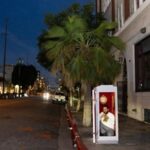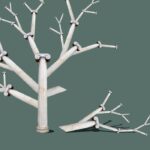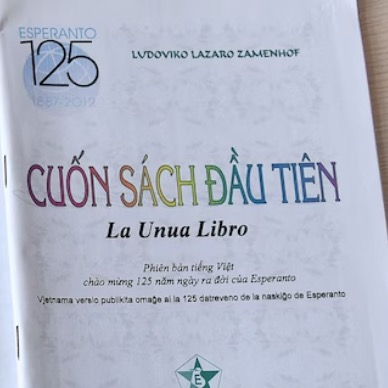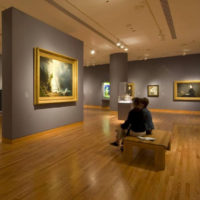AJ Four Ways: Text Only (by date) | headlines only
DANCE
IDEAS
- Our Culture Of Insurance Is Breaking Down

What emerged in tandem with the growth of capitalism was a system in which insurance and investment were bound together until it became integral to the economic system, seen as essential in protecting investments. This is why today you can’t get a mortgage without it. – Aeon
- The British Museum Employee Who Stole More Than 300 Prints
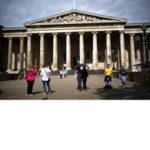
“Nigel Peverett, who worked at the museum’s Department of Prints and Drawings in the early 1970s, had remained a ‘frequent visitor’ until one day in April 1992, when he was caught.” He was prosecuted, hospitalized after a suicide attempt, and got a suspended sentence. Amazingly, he kept his employee pension. – The Independent (UK)
- Looking Back at NYC with Nostalgia and Dismay
 <a href="https://www.artsjournal.com/herman/2026/03/looking-back-at-nyc-with-nostalgia-and-dismay.html" title="Looking Back at NYC with Nostalgia and Dismay” rel=”nofollow”>
<a href="https://www.artsjournal.com/herman/2026/03/looking-back-at-nyc-with-nostalgia-and-dismay.html" title="Looking Back at NYC with Nostalgia and Dismay” rel=”nofollow”> In a newly recorded video, the noted writers Elisabeth Bronfen, Maaza Mengiste, and Christoph Keller look back at their experience of New York City with nostalgic affection — and, it must be said, with considerable dismay — from their vantage points in Switzerland and Germany.
In a newly recorded video, the noted writers Elisabeth Bronfen, Maaza Mengiste, and Christoph Keller look back at their experience of New York City with nostalgic affection — and, it must be said, with considerable dismay — from their vantage points in Switzerland and Germany. - Russia Returns To Exhibiting At The Venice Biennale

Russia will host a pavilion at this year’s Venice Biennale, the world’s most important art event — the latest sign of the country’s will to end its pariah status in global cultural and sporting life amid the war in Ukraine. – The New York Times
- How We Can Shape Our Dreams

Targeted Dream Incubation (TDI) uses external stimuli to connect with a dreamer and encourage them to focus on a particular topic or theme. – The Walrus
ISSUES
- The British Museum Employee Who Stole More Than 300 Prints

“Nigel Peverett, who worked at the museum’s Department of Prints and Drawings in the early 1970s, had remained a ‘frequent visitor’ until one day in April 1992, when he was caught.” He was prosecuted, hospitalized after a suicide attempt, and got a suspended sentence. Amazingly, he kept his employee pension. – The Independent (UK)
- Russia Returns To Exhibiting At The Venice Biennale

Russia will host a pavilion at this year’s Venice Biennale, the world’s most important art event — the latest sign of the country’s will to end its pariah status in global cultural and sporting life amid the war in Ukraine. – The New York Times
- Protests Over Announcement DePaul University Will Close Its Museum
The move has prompted outrage from faculty and staff, including an open letter penned by art history and philosophy faculty members and signed by more than 2,000 community members that criticized the school’s decision as “short-sighted, wrong-headed, and grounded in some deeply disappointing principles of prioritization.” – Hyperallergic
- Inside The Painstaking Restoration Of A Frank Lloyd Wright House

The Martin House’s resurfacing as a museum—with its insides restored, and its carriage house and conservatory rebuilt to original specifications—is nothing short of a “civic miracle.” – Artnet
- Chicago Art Institute Expansion Threatens Iconic Louis Sullivan Room

The old Chicago Stock Exchange Building trading room — Adler & Sullivan’s gilded age space rescued from demolition 54 years ago — could be uprooted from its longtime Art Institute of Chicago home under preliminary expansion plans being considered by the museum. – Chicago Sun-Times
MEDIA
- Trump’s “Freedom Truck” Mobile Exhibitions Are Now On The Road
“As the U.S. gears up for the 250th anniversary of the signing of the Declaration of Independence, President Donald Trump has dispatched six roving Freedom Truck exhibitions to crisscross the country. The first of 20 planned stops — mainly in the South, with forays to the Midwest, Arizona, and Utah — was last month in Nashville.” – Artnet
- LA’s Art Gold Rush Ends, Actual Work Begins
The carpetbaggers have packed their Hermès bags and fled back east. What remains? The unglamorous business of building a real art scene—one gallery lease and artist studio at a time. — Artnet
- Supreme Court to AI Art: Sorry, Humans Only
The high court declined to revisit whether algorithms can hold copyright, leaving AI creations in legal limbo. While tech bros rage and traditional artists breathe easier, the real question remains: who profits when creativity gets automated? — Artnet
- The Role Of Arts And Culture In Turbulent Times
When the news and social media are flooded with opposing interpretations of events, outright lies, and about a zillion editorial style video shorts that offer about a zillion different opinions, art and culture can bring the reality and humanity of the headlines to light. – Ludwig Van
- Downtown L.A.’s Latest, And Smallest, Performance Venue Looks Like An Electrical Box
Indeed, when artist S.C. Mero was installing it in the Arts District, police stopped her, concerned she was ripping out copper wire. Inside, the Electrical Box Theatre is “an impromptu performance space for the sort of experimental artists who no longer have an outlet in downtown’s galleries or more refined stages.” – Los Angeles Times (Yahoo!)
MUSIC
- How A Scholar Stumbled On Handwritten Notes By Galileo
Historian Ivan Malara spotted notes, annotations and a Bible verse handwritten by the young Galileo circa 1590 in an early printed copy of the Almagest, the second-century C.E. treatise on astronomy by Ptolemy which placed the Earth at the center of the universe. – Smithsonian Magazine
- Colm Tóibín: Of Course AI Is A Threat To Creative Writing
“This idea [that] no machine could ever replace my sensibility, which is so rich, varied, complex, and arising from experience and from history – that’s all rubbish. You can actually manufacture that.” – The Conversation
- Who Wrote This? The Age-Old Question Gets Circuitry
Before ChatGPT made everyone panic about robot poets, writers were already grappling with authenticity’s slippery slope. Ghostwriters, collaborators, editors—the literary world’s dirty secret is that pure authorship was always a romantic fiction. — LitHub
- The Artist Who Copied Out The Complete “Moby-Dick” By Hand
Bethany Collins spent four months transcribing the 900-odd-page text. She finds many of Melville’s concerns relevant today: “following the lone madman who will take the whole ship down, … overconsumption, the pursuit of oil and an obsession with whiteness.” (Okay, the last one might be a stretch.) – T — The New York Times Magazine
- The AI-Written College Essay And The Decline Of Thinking
Surely the most dismal prospect is that we will lose sight of our own forms of thinking and understanding if those terms are assimilated to the capacities of AI. – Public Books
PEOPLE
- Our Culture Of Insurance Is Breaking Down
What emerged in tandem with the growth of capitalism was a system in which insurance and investment were bound together until it became integral to the economic system, seen as essential in protecting investments. This is why today you can’t get a mortgage without it. – Aeon
- The British Museum Employee Who Stole More Than 300 Prints
“Nigel Peverett, who worked at the museum’s Department of Prints and Drawings in the early 1970s, had remained a ‘frequent visitor’ until one day in April 1992, when he was caught.” He was prosecuted, hospitalized after a suicide attempt, and got a suspended sentence. Amazingly, he kept his employee pension. – The Independent (UK)
- Looking Back at NYC with Nostalgia and Dismay<a href="https://www.artsjournal.com/herman/2026/03/looking-back-at-nyc-with-nostalgia-and-dismay.html" title="Looking Back at NYC with Nostalgia and Dismay” rel=”nofollow”>
 In a newly recorded video, the noted writers Elisabeth Bronfen, Maaza Mengiste, and Christoph Keller look back at their experience of New York City with nostalgic affection — and, it must be said, with considerable dismay — from their vantage points in Switzerland and Germany.
In a newly recorded video, the noted writers Elisabeth Bronfen, Maaza Mengiste, and Christoph Keller look back at their experience of New York City with nostalgic affection — and, it must be said, with considerable dismay — from their vantage points in Switzerland and Germany. - Russia Returns To Exhibiting At The Venice Biennale
Russia will host a pavilion at this year’s Venice Biennale, the world’s most important art event — the latest sign of the country’s will to end its pariah status in global cultural and sporting life amid the war in Ukraine. – The New York Times
- How We Can Shape Our Dreams
Targeted Dream Incubation (TDI) uses external stimuli to connect with a dreamer and encourage them to focus on a particular topic or theme. – The Walrus
PEOPLE
- Our Culture Of Insurance Is Breaking Down
What emerged in tandem with the growth of capitalism was a system in which insurance and investment were bound together until it became integral to the economic system, seen as essential in protecting investments. This is why today you can’t get a mortgage without it. – Aeon
- The British Museum Employee Who Stole More Than 300 Prints
“Nigel Peverett, who worked at the museum’s Department of Prints and Drawings in the early 1970s, had remained a ‘frequent visitor’ until one day in April 1992, when he was caught.” He was prosecuted, hospitalized after a suicide attempt, and got a suspended sentence. Amazingly, he kept his employee pension. – The Independent (UK)
- Looking Back at NYC with Nostalgia and Dismay<a href="https://www.artsjournal.com/herman/2026/03/looking-back-at-nyc-with-nostalgia-and-dismay.html" title="Looking Back at NYC with Nostalgia and Dismay” rel=”nofollow”>
 In a newly recorded video, the noted writers Elisabeth Bronfen, Maaza Mengiste, and Christoph Keller look back at their experience of New York City with nostalgic affection — and, it must be said, with considerable dismay — from their vantage points in Switzerland and Germany.
In a newly recorded video, the noted writers Elisabeth Bronfen, Maaza Mengiste, and Christoph Keller look back at their experience of New York City with nostalgic affection — and, it must be said, with considerable dismay — from their vantage points in Switzerland and Germany. - Russia Returns To Exhibiting At The Venice Biennale
Russia will host a pavilion at this year’s Venice Biennale, the world’s most important art event — the latest sign of the country’s will to end its pariah status in global cultural and sporting life amid the war in Ukraine. – The New York Times
- How We Can Shape Our Dreams
Targeted Dream Incubation (TDI) uses external stimuli to connect with a dreamer and encourage them to focus on a particular topic or theme. – The Walrus
THEATRE
VISUAL
- Our Culture Of Insurance Is Breaking Down
What emerged in tandem with the growth of capitalism was a system in which insurance and investment were bound together until it became integral to the economic system, seen as essential in protecting investments. This is why today you can’t get a mortgage without it. – Aeon
- How We Can Shape Our Dreams
Targeted Dream Incubation (TDI) uses external stimuli to connect with a dreamer and encourage them to focus on a particular topic or theme. – The Walrus
- Universities As Practical Job Creators? We Ought To Do Better Than That!
An education spent in pursuit of material comfort and convenience is a recipe for unhappiness, an existence in thrall to the raw, hungry American mantra of success, “More! More!” – LA Review of Books
- When Pop Culture Has a Half-Life of Six Months
Kids giggling at “six-seven” reveals the brutal math of digital culture: references expire faster than milk. What happens when shared cultural touchstones become as fleeting as TikTok trends? Generational gaps now measure in weeks, not decades. — Common Reader
- Why Is It So Hard To Make The Case For Universities?
The “constitutive” role of universities cannot merely be announced to like-minded audiences or extracted from sympathetic courts. – Chronicle of Higher Education




